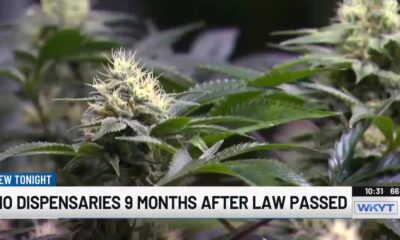A Drug Enforcement Administration judge has forwarded a legal challenge over the ongoing marijuana rescheduling process to the agency’s administrator. The move comes amid a federal leadership transition that could affect who ultimately decides how the reclassification will play out.
Chief Administrative Law Judge John J. Mulrooney II transmitted a legal appeal to DEA Administrator Anne Milgram last week, though Milgram has since stepped down from the role. She was replaced by interim administrator George Papadopoulos, according to Marijuana Moment. Marijuana rescheduling proceedings were halted just days before hearings were set to begin.
“The denied relief included a petition to have you and your agency removed as the proponent of the [notice of proposed rulemaking],” Mulrooney wrote to Milgram.
The DEA and Smart Approaches to Marijuana, a leading anti-legalization group cited in bias allegations, have both previously rejected claims of improper behind-the-scenes communication.
Mulrooney also recommended in his transmittal letter that “in addition to the Government and the Interlocutory Appellants, all Designated Participants be included in any briefing schedule” issued by the administrator. The judge noted that no hearing had been conducted on the bias allegations and “no evidence or testimony was received on the underlying factual allegations.”
There’s confusion over who actually supported the challenge, as well. The judge wrote that a “clerical and communication error” had misrepresented the position of key participants. Ellen Brown of the Massachusetts Cannabis Advisory Board and a company called My Florida Green were incorrectly listed as supporting an appeal motion filed by their consolidated group, which is led by the Connecticut Office of the Cannabis Ombudsman and sought to remove the DEA from its role overseeing the rescheduling process.
Since Brown was previously deemed ineligible to participate in the hearings independently and could only proceed as part of the consolidated group, being separated from that group left her “in quite a pickle,” Mulrooney wrote. She now has “no viable role in the hearing proceedings” unless she can find another way to participate.
The leadership uncertainty comes as President Donald Trump seeks a permanent DEA head. His previous nominee, Florida Sheriff Chad Chronister of Hillsborough County, withdrew from consideration last month amid scrutiny from conservative lawmakers over his COVID-19 enforcement record.
The rescheduling process is also unfolding in the shadow of wider policy visions materializing within the new Trump administration. Robert F. Kennedy Jr., who is Trump’s nominee to lead the Department of Health and Human Services, is poised to inherit an agency recommendation that helped kick off the rescheduling process last year.
Both sides must update the tribunal on the appeal’s status every 90 days while the proceedings remain paused. The process now moves to agency leadership’s control, including decisions on briefing schedules and possible oral arguments.
2286000-2286030-marijuanaresched_letter with enclosures to administrator anne milgram from dea alj re transmittal of
2286000-2286030-marijuana rescheduling_order regarding interlocutory appellant brown_s notice

 California Cannabis Updates1 year ago
California Cannabis Updates1 year ago
 Breaking News1 year ago
Breaking News1 year ago
 best list1 year ago
best list1 year ago
 Business12 months ago
Business12 months ago
 cbd1 year ago
cbd1 year ago
 Bay Smokes1 year ago
Bay Smokes1 year ago
 autoflower seeds12 months ago
autoflower seeds12 months ago
 cannabis brands12 months ago
cannabis brands12 months ago

















































